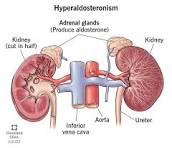INTRODUCTION
Health is wealth—a simple yet profound truth. One sickness can drain a
lifetime of savings, leaving individuals and families in distress. While modern
medicine has made remarkable strides in diagnosing and treating diseases, many
health conditions continue to defy medical solutions, pushing us to explore
alternative approaches.
Natural remedies have been a cornerstone of healing for centuries, long before
the advent of modern pharmaceuticals. Across cultures and civilizations, people
have relied on nature’s gifts—herbs, roots, fruits, and holistic practices—to
restore health and vitality. While this encyclopedia does not seek to undermine
the importance of medical science, it aims to complement it by shedding light
on time-tested natural solutions.
Natural Remedies For Depression
I’m not a doctor, but I can provide information on some natural
remedies that people have tried to alleviate mild symptoms of
depression. However, it’s crucial to understand that depression is a
serious medical condition, and severe cases require professional
treatment. Always consult with a healthcare provider for proper
evaluation and guidance. Here are some natural remedies that may help
manage mild depression symptoms:
1. Regular Exercise
How it works: Exercise releases endorphins, which are natural
mood lifters and stress reducers.
Preparation: Engage in moderate aerobic activities like brisk
walking, jogging, or dancing for at least 30 minutes most days of
the week.
Usage: You can exercise at home, at a gym, or in your local park.
2. Omega-3 Fatty Acids
How it works: Omega-3 fatty acids found in fatty fish like
salmon and walnuts may have mood-stabilizing effects.
Preparation: Consume fatty fish regularly or consider fish oil
supplements (follow the recommended dosage).
Usage: Fatty fish can be found at local markets close to you, and
fish oil supplements are available at pharmacies and health food
stores.
3. St. John’s Wort (Hypericum perforatum)
How it works: St. John’s Wort is an herbal remedy that may help
relieve mild to moderate depression by increasing the levels of
certain neurotransmitters.
Preparation: Take St. John’s Wort supplements as directed by a
healthcare provider.
Usage: St. John’s Wort supplements can be found in health food
stores.
4. Meditation and Relaxation Techniques
How it works: These practices can reduce stress and promote a
sense of calm and well-being.
Preparation: Find a quiet space, sit or lie down comfortably, and
focus your attention on your breath or a specific mantra.
Usage: You can learn meditation techniques through classes,
apps, or other resources available in local markets close to you.
5. Saffron (Crocus sativus)
How it works: Some studies suggest that saffron may have
antidepressant properties.
Preparation: Saffron can be used as a spice in cooking, or
saffron supplements are available (follow the recommended
dosage).
Usage: Saffron can be purchased at spice stores or local markets
close to you, and supplements can be found in health food stores.
6. Aromatherapy
How it works: Certain essential oils, such as lavender and
bergamot, may help reduce anxiety and improve mood.
Preparation: Use an essential oil diffuser or add a few drops of
essential oil to a carrier oil and apply it to your skin.
Usage: Essential oils are available at health food stores and local
markets close to you.
7. Supportive Social Network
How it works: Connecting with friends and loved ones can
provide emotional support and reduce feelings of isolation.
Preparation: Reach out to your social network regularly, either
in person or through virtual communication.
Usage: Maintain your social connections as part of your daily
routine.
Key Consideration
It’s essential to remember that natural remedies may not work for
everyone, and their effectiveness can vary. If you or someone you know
is struggling with depression, please seek professional help from a
mental health provider. Depression can be a complex condition that
often requires a combination of therapy, medication, and lifestyle
changes for effective management.



